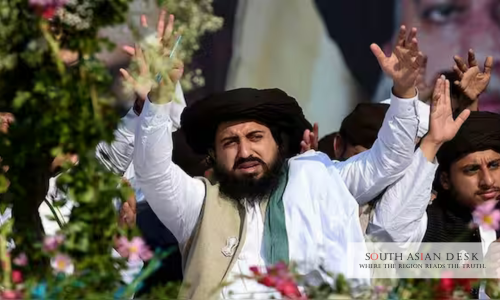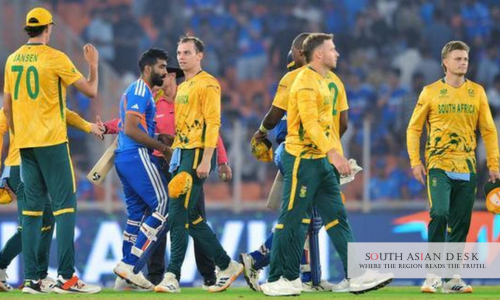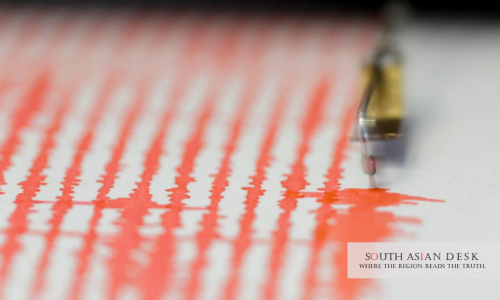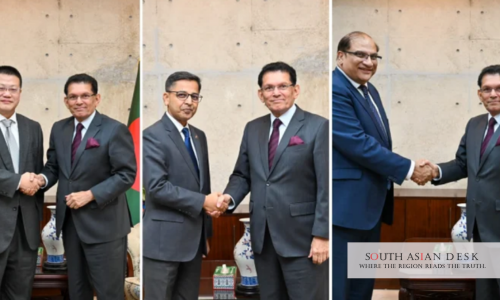Islamabad, October 24, 2025: Pakistan bans TLP, under the Anti-Terrorism Act following clashes that killed five people during an anti-Israel rally on October 13.
The cabinet approved the measure on October 23. Interior Ministry officials announced the ban on Friday. TLP supporters clashed with police in Punjab province. The violence paralysed highways from Karachi to Islamabad.
Pakistan bans TLP action that targets a group linked to repeated unrest. It marks the second such prohibition in four years. The move stems from TLP’s alleged terrorist activities and failure to honour past non-violent pledges. In South Asia, the decision highlights shared challenges with religious extremism. Groups like TLP stoke sectarian tensions that spill across borders. India monitors closely due to blasphemy-related flare-ups. Afghanistan faces similar ideological threats amid Taliban rule. The ban could stabilize trade routes, but it risks escalating protests in the region.
Pakistan Bans TLP, Violence Prompts Swift Response
Clashes erupted during TLP-led marches over Gaza. Police fired on protesters in Muridke near Lahore. Official reports confirm five deaths: three TLP members, one officer, and one bystander. Dozens suffered injuries. Highways shut down for hours. Authorities arrested nearly 1,000 TLP affiliates in Punjab.
The Punjab government recommended the ban. Interior Ministry summaries detailed TLP’s decade-long pattern. These include incitement against minorities and sectarian clashes. Past rallies killed security personnel and civilians.
Prime Minister Shehbaz Sharif chaired the cabinet meeting. Senior Punjab officials joined via video link. The body reviewed violence reports from all provinces. Participants agreed that TLP paralyses the nation repeatedly.
Adviser Rana Sanaullah clarified the intent. He told Geo News that the ban aims to purge anti-state elements. “No issue with religious views. But protests lead to violence like in Faizabad 2017,” Sanaullah said.
Minister of State Talal Chaudhry echoed this. On the same channel, he cited provincial reports. “TLP violated commitments. Government had no choice,” Chaudhry stated. The ministry summoned data on TLP’s role in unrest.
TLP rejected the order. Party leaders called it unconstitutional and dictatorial. They vowed to challenge it legally. Supporters rallied in Lahore on Friday, defying the ban imposed on them.
Federal Cabinet TLP Ban Approval Unanimous
The cabinet convened in Islamabad on October 23. It approved the proscription under Section 11B of the 1997 Act. This lists TLP in the first schedule of terrorist organisations.
The notification text is clear. “Federal government has reasonable grounds to believe TLP connects to terrorism,” it states. Powers invoked order the group proscribed.
Radio Pakistan broadcast the decision promptly. “Cabinet unanimously approved ban on TLP under Anti-Terrorism Act,” the state broadcaster reported. Punjab’s request triggered the summary.
This federal cabinet TLP ban approval follows the 2021 precedent. Then-Prime Minister Imran Khan’s government imposed it after deadly sit-ins. The ban was lifted after six months on non-violent terms. TLP breached those soon after.
The National Counter-Terrorism Authority maintains proscribed lists. Entities include Tehreek-i-Taliban Pakistan and Jaish-e-Mohammad. TLP joins them now. Associates face travel curbs and financial freezes. They are entered into the Fourth Schedule for surveillance.
Cabinet sources noted consensus. “Almost everyone viewed TLP’s firebrand approach as must end,” one said. The PMO affirmed unanimity. “Security personnel and innocents died in past TLP violence,” it added.
Tehreek-e-Labbaik Pakistan Outlawed Over Gaza Fury
TLP was formed in 2015 as a movement defending blasphemy. It entered politics in 2016. The group garnered over two million votes in the 2018 polls. It ranked fourth largest then.
Rallies focus on religious issues. These cover the Gaza conflict and the Prophet Muhammad caricatures. French magazine Charlie Hebdo sparked one in 2020. TLP marches blocked roads nationwide.
Recent Gaza protests intensified. Supporters decried Israel’s actions. Clashes followed police attempts to disperse crowds. Smoke rose over Muridke as forces clashed. Videos show protesters hurling stones. Officers responded with tear gas and shots.
The Tehreek-e-Labbaik Pakistan’s outlawed status halts operations. Party offices face closure. Leaders risk arrest. Financial assets freeze under sanctions.
Legal avenues remain. Article 17 of the Constitution allows for appeals to the Supreme Court. Decisions come within 15 days. The Elections Act, Section 212, offers dissolution routes. Court adjudication follows.
Opposition parties react with mixed reactions. PTI questions timing amid political rifts. PML-N defends it as a security imperative. Analysts warn of underground shifts. Banned groups often regroup covertly.
South Asian watchers note parallels. Bangladesh curbs hardliners post-quota unrest. India probes cross-border links. The ban aids regional counter-terror pacts.
Background: TLP’s Turbulent Path
TLP emerged from the 2011 funeral of a guard who killed Punjab governor Salman Taseer. Taseer opposed blasphemy laws. The guard became a martyr figure.
Khadim Hussain Rizvi founded it. Son Saad leads now. Mass rallies draw crowds. In 2017, the Faizabad sit-in forced government concessions. The Army mediated then.
In 2021, protests demanded the expulsion of the French envoy. They killed over a dozen. Ban followed. The ban was lifted after the deal, and violence resumed.
Blasphemy accusations claim lives yearly. Mobs lynch suspects. Laws carry the death penalty. Misuse settles scores often.
TLP exploits this. It targets minorities like Ahmadis and Christians. Sectarian incitement draws ire.
What’s Next: Legal Battles and Security Shifts
Supreme Court petitions loom. TLP plans challenges. Hearings could drag on for months. Authorities boost patrols in Punjab. Arrests continue. NACTA updates lists. Donors’ eye stability. IMF talks hinge on reforms. Regional forums like SAARC discuss extremism.
The Pakistan ban on TLP verdict tests resolve. It aims to curb the TLP-banned Pakistan violence. Yet history shows resilience. Governance must address roots. Education and dialogue counter radical pulls. South Asia watches for spillover.
Published in SouthAsianDesk, October 24th, 2025
Follow SouthAsianDesk on X, Instagram, and Facebook for insights on business and current affairs from across South Asia.






